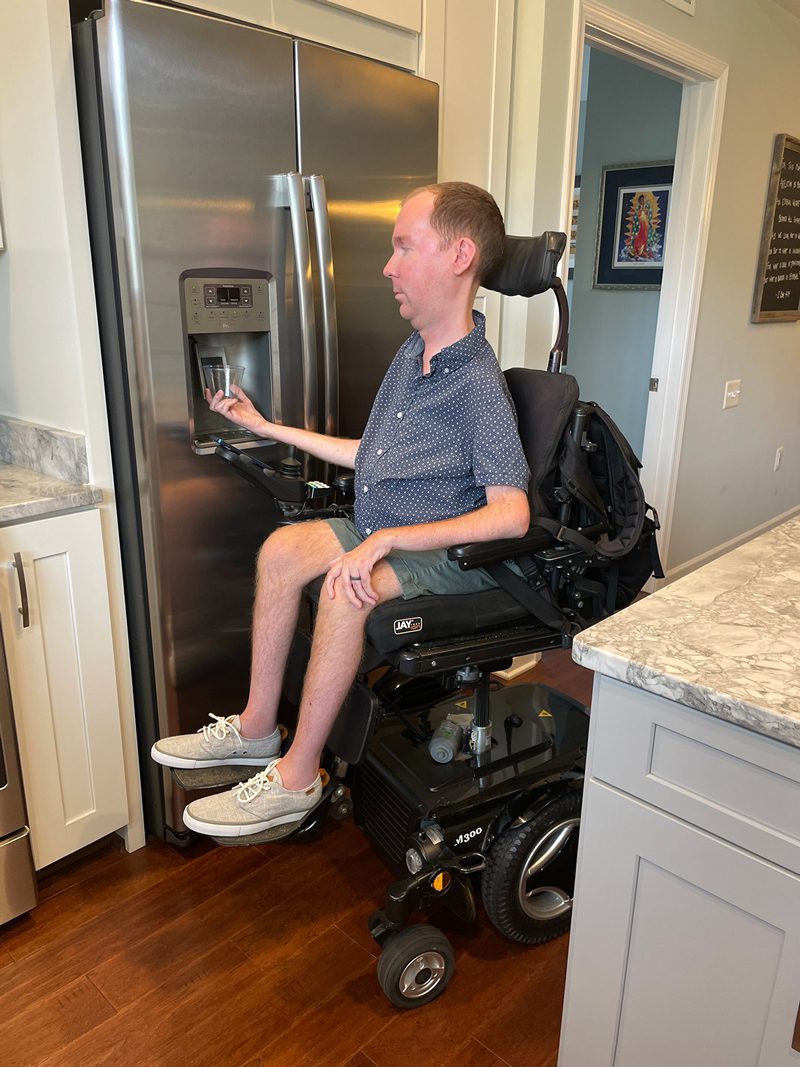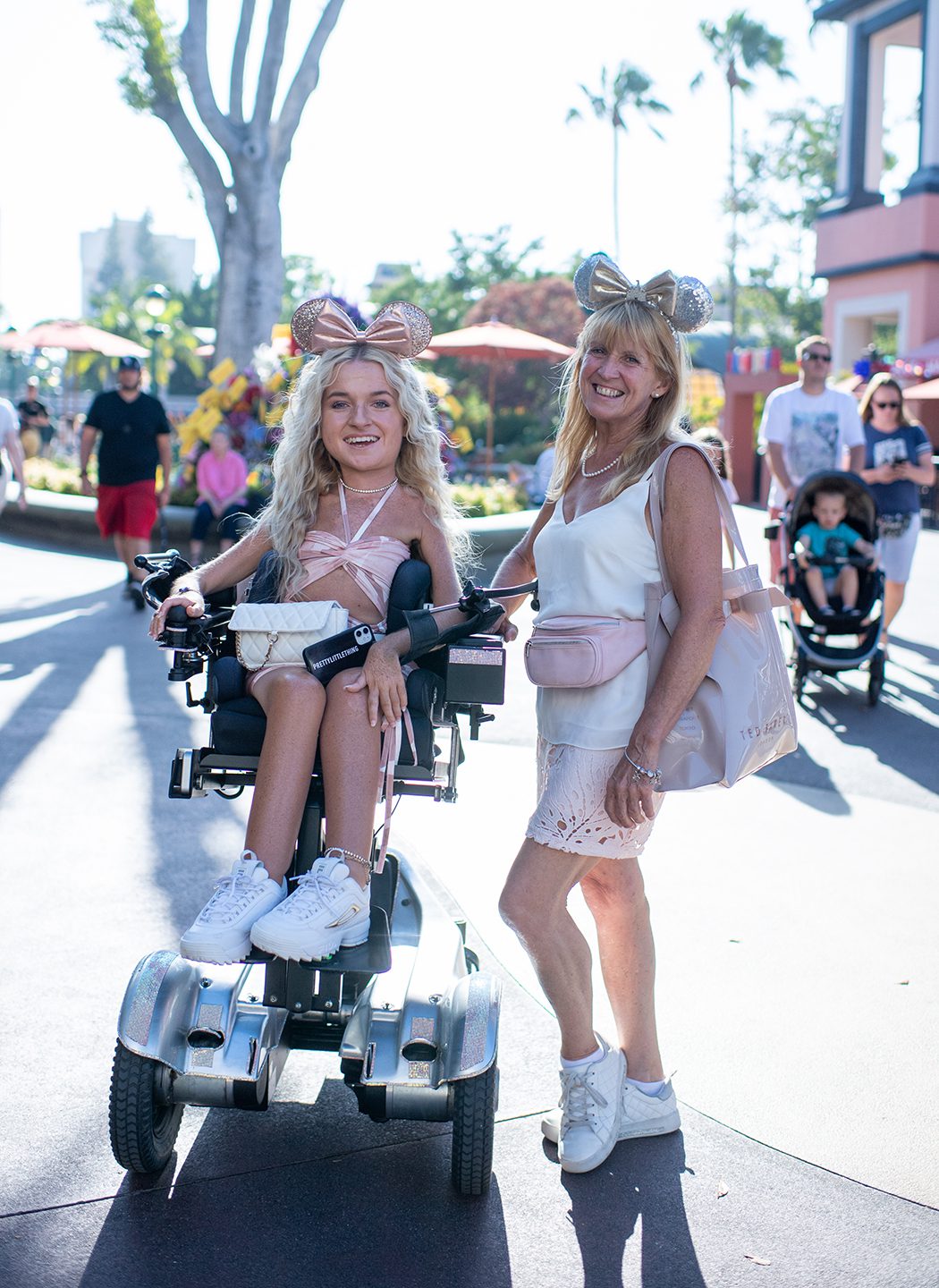Individuals with spinal muscular atrophy (SMA) who utilize power wheelchairs for their mobility agree that seat elevation, which allows an individual to adjust their wheelchair seat, helps improve mental and physical health, increase quality of life, and promote independence. The SMA community’s views were shared in a public comment letter Cure SMA sent to the Centers for Medicare and Medicaid Services (CMS).

Medicare is currently prohibited from covering seat elevation because CMS, the federal agency responsible for determining national coverage policies, does not view the feature as being “medically necessary.” CMS policy can also impact coverage decisions by other insurers. “My insurance utilizes Medicare guidelines and has denied seat elevation,” said a California woman with SMA.
Cure SMA disagrees with the CMS coverage determination.
In 2020, Cure SMA, the leading organization that represents children and adults with SMA, joined other groups in asking CMS to reconsider its coverage restrictions on seat elevation and standing systems for power wheelchairs. CMS accepted the request related to seat elevation and announced a public comment period to collect feedback on its coverage policy.
In a 4-page response, Cure SMA shared results of a recent survey that showed that more than 70% of individuals with SMA said that their seat elevator improved their health and well-being. The letter, which featured more than two dozen first-person quotes and experiences from adults with SMA and parents of children with SMA, noted that the SMA community considers seat elevation as medically necessary for reducing pain, improving overall well-being, and preventing injuries.
 Featured comments from individuals with SMA and their families included:
Featured comments from individuals with SMA and their families included:
-
-
-
-
-
-
- On How Seat Elevation Reduces Pain: “Raising up with a seat elevator helps me engage with others at a peer level without hurting my neck since I have neck contractures and can’t look up.”
- On How Seat Elevation Improves Well-Being: “Before I had the elevator, I would skip meals and sometimes not eat because I couldn't. Malnutrition has no limit on the health complications it may result in. I am now able to eat and feed myself because I can raise my wheelchair to a position where I can use the limited strength in my arms to feed myself.”
- On How Seat Elevation Prevents Injuries: “Seat elevators are essential for the safety of both parties during transfers, and these transfers happen multiple times per day. It reduces injuries caused by drops or other transfer challenges.”
- On How Seat Elevation Promotes Independence: “Seat elevation and standing systems provide independence and access. These functions are not only critical for physical health but psychosocial well-being and self-determination.”
-
-
-
-
-
For more information about Cure SMA and how it is helping to advance the advocacy priorities of individuals with SMA and their families, visit https://www.curesma.org/advocacy/.



